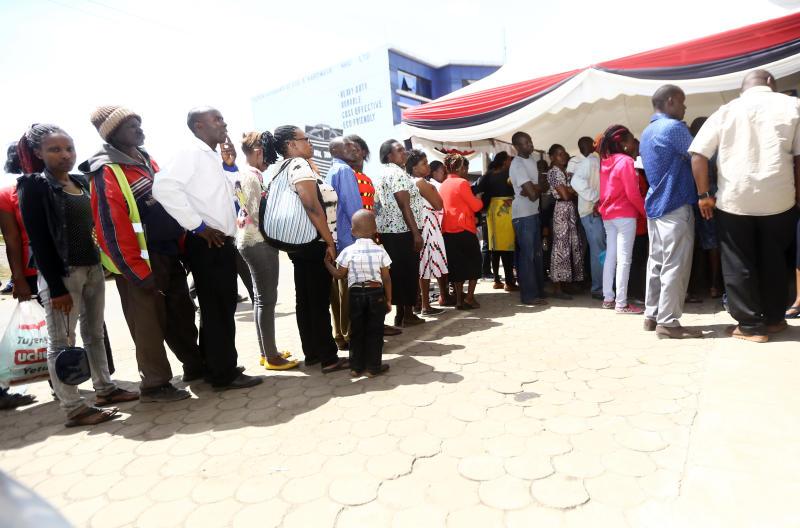×
The Standard e-Paper
Stay Informed, Even Offline

Kenyans queue to file their tax returns at the Kenya Revenue Authority office in Nakuru town. [File, Standard]
Kenya has agreed to loan conditions set by the International Monetary Fund (IMF) to access new credit as the flow of taxes into government coffers gets sluggish due to the Covid-19 pandemic.